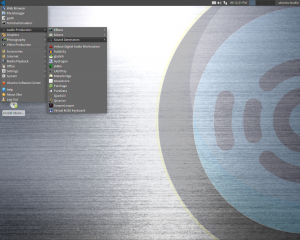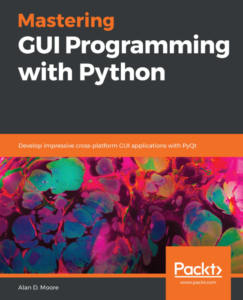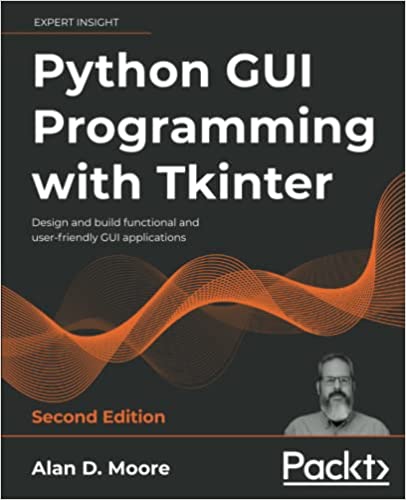Not so long ago, I posted about my attempts to bring my old DAW system back to life with Lubuntu. Emboldened by my success, and eager to get it on a nice firm LTS-release foothold, I tried to upgrade it to Precise Pangolin a few weeks ago. Sadly, the results were not so great: after upgrading, I ran afoul of a mysterious bug that caused Ardour, Audacity, and Hydrogen (and possibly other programs) to segfault when I started them. Despite my best efforts to track down the error (probably caused by my liberal use of PPAs and 3rd-party repositories), it became clear I needed to start afresh.
This time I decided to skip a bit of the DIY and just grab a ready-made audio production distro; after all, there are plenty of them out there, aren’t there? Well, the hunt began for an audio-production oriented distro that would work decently on an older 32-bit system while promising future updates; and yes, believe me, my not-so-fond-of-Ubuntu friends out there, I didn’t limit myself to ‘buntuland. Yet search as I might, every project I found seemed either at least 18 months stale (if not out-and-out abandoned), or a one-man project based on Debian or Ubuntu anyway. In the end, Ubuntu studio seemed best to fit the bill. So I downloaded the nearly 2 GB .iso file, popped it on my flash drive, and loaded it onto the old workhorse; and here, dear reader, are my findings so far…
The desktop
Ubuntu Studio, mercifully, uses the XFCE desktop, whose light resource footprint fits just fine on my crusty old Sempron system. It’s not quite as light as Lubuntu, but close enough and more mature. Ironically, the layout is almost exactly what I’d set up on my Lubuntu desktop, with the panel at the top and a bar of larger quick-launch shortcuts at the bottom. You might say it’s a bit of a nod to the Mac desktop layout, though without the global menu and animated dock. This sort of layout works well for me, and I’ve pretty much moved to a top panel on all my systems no matter what DE I use.
One nice improvement over my Lubuntu setup, though, is the menu; it’s been carefully customized to organize applications into convenient categories (audio production, video production, photography, etc) and sub-categories (effects, recording, mixing, etc), so you don’t have to scroll through some giant “multimedia” menu to find your favorite soft-synth. Nicely done, lads.
The desktop did require a bit of customization for me; I didn’t need the indicator plugin (no chatting while I’m recording, thanks), nor did I want that bottom toolbar auto-hiding (I have plenty of screen real-estate, and auto-hiding panels always tend to pop-up annoyingly when I’m trying to do stuff at the edges of a maximized window). The default volume icon is useless with my multi-channel audio interface, so it goes out as well, and I replaced the icons in the bottom panel (all of which are generic apps like chat, web, file browser, etc) with my most commonly used audio apps. Last, and probably very much least, the default wallpaper is professional-looking but rather drab and mostly unnecessary, so it got replaced with a flat color background to save some CPU.
Applications
Ubuntu Studio isn’t just for musicians, but pretty much anyone who works with multimedia. So all the applications you’d expect for audio, video, and graphics work are here. I don’t do either of the latter, so my focus is on the audio. You have:
- Jack2 set up and ready to rock. I’d been on Jack v1 before, since it worked better with my (antique) MIDI interface, but so far Jack2 works well enough. I like new software :).
- Ardour, as the main DAW.
- Audacity, for audio editing. I also prefer this for non-musical recording (e.g., VO work)
- Hydrogen drum machine
- GUITARIX!!! my amp simulator of choice, when I rock out (it happens…)
- Most of the better LADSPA, LV2, and DSSI plugins for effects and synths
- QTractor for MIDI-sequencing
Rosegarden isn’t there, but personally I didn’t use it much, and it’s readily available from software center of course, along with LMMS, Buzztard, several trackers, and various other niche applications that some musicians may find compelling. I also found a few more plugins in the software center that weren’t included by default, as well as the Bristol softsynth collection; most of the stuff I actually find useful, however, is ready to roll out-of-the-box. Nice.
For the graphically inclined, there’s a good selection of applications like GIMP (not the new 2.8 version (yet)), InkScape, Dark Table, MyPaint, and Blender. OpenShot video editor looks compellingly simple, even for someone like me who’s never done any video work. I think the kids might be interested in checking that out more now that they have a new webcam. DVD mastering software (DVDStyler) is also included, for those who wish to put their video creations to disc.
For now I’m resisting the urge to go hunting for more plugins from 3rd-party sources, as I don’t want the next upgrade to blow my system apart; but really, everything I need to start recording is already here.
Under the hood
Digging below the surface, Ubuntu Studio conveniently comes with the lowlatency Linux kernel installed by default, which saves adding in a PPA or compiling it yourself. That’s convenient!
My M-audio Delta 44 (another antique, I know) works flawlessly with Ubuntu Studio, and the appropriate mixer/configuration software (Mudita24) is already installed. No worries there.
I also had no trouble getting it to work with my parallel-port MOTU MIDI Express, after applying the same modprobe configurations I did before, though as I mentioned it doesn’t work as well with Jack2 (basically, it doesn’t show up in the Jack MIDI ports, just in the ALSA MIDI ports).
I did have some initial trouble with pulseaudio, which is supposed to be nicely integrated with Jack, but wasn’t working right and caused a lot of slowdown. I purged pulseaudio, and everything is working fine (and much faster). Not sure why it was included, it adds nothing to Jack in my opinion.
Dreams and wishes
In my wildest dreams, (ok, not wildest) I could wish that Ubuntu Studio came with Wine VST support working right out of the box, with a simple interface for installing my VST and VSTi plugins from the old days. I guess that would probably violate some kind of intellectual property restriction, and in any case the basics are already covered.
Of course, what would be even better would be the development of more quality libre LV2 plugins, included and ready to roll. I suppose that will come eventually.
I wonder if the Ubuntu Studio developers might look into doing some sort of integration with FOSS-related music services, like Jamendo or UbuntuOne Music, so that artists can readily publish their creations. Not sure how that would work, but it’s a thought.
Really though, with Ubuntu Studio installed what I most need now is something no distro can provide: the time and energy to get out the microphones and start recording! Wish me luck!



Hey Alan, thanks for the info. I am using also Ubuntu studio 12.04. In General, all is well: all the applications installed work and are stable. Recently, I decided to install Wine and also Skype. What was my surprise to find that none of these two essential programs are “impossible” to install. Please believe me, I have scourged the web high and low, east and west; tried all the tricks proposed; found countless similar cases, related with the same version of “buntus” 12.04, of the 64bit species. All of them, plagued with this problem. Needless to say, never seen this before (ups! I said it; my bad). So, here I am, really grinding my teeth, pulling my heir out,to no avail.Definitely, this is the drop that overflows the vase. Need something that works, that doesnt “stab” me on the back. Nobody can help. I am tired of upgrades all the time….
Strange; I don’t have a 64-bit 12.04 machine going anymore, but I haven’t had problems installing Wine. I was unable to install a version of Wine that worked with wine-asio to get Windows VST support working, but I was able to install Wine.
As for skype… it works on my 64-bit 12.10 machine at work. Never tried it on 12.04 (I’m new to skype, only cared just recently). My Studio machine is dedicated to just making music, so I never tried on it.
Good luck.
Get Wineasio working in Ubuntu 12.04
Get winasio from Ubuntu forums at:
http://ubuntuforums.org/showthread.php?t=1241187
Open a terminal and type: wine regedit
Navigate to: HKEY_CURRENT_USER\Software\Wine\Drivers
I had to edit the registry, create the following HKEY because it was not there. Then I added an “Audio” key with “alsa” as the data value.
(Note: Problem in Ubuntu 12.04, the subdirectory Drivers does not exist under Wine in the registry so I had to create the above HKEY_CURRENT_USER\Software\Wine\Drivers
first. )
Then in the terminal navigate to where wineasio.dll.so is locatd (at /usr/lib/wine) Then copy it using the terminal window command “sudo cp wineasio.dll.so /usr/lib/i386-linux-gnu/wine”
Then in the terminal type “regsver32 wineasio.dll” and wineasio is working for me!